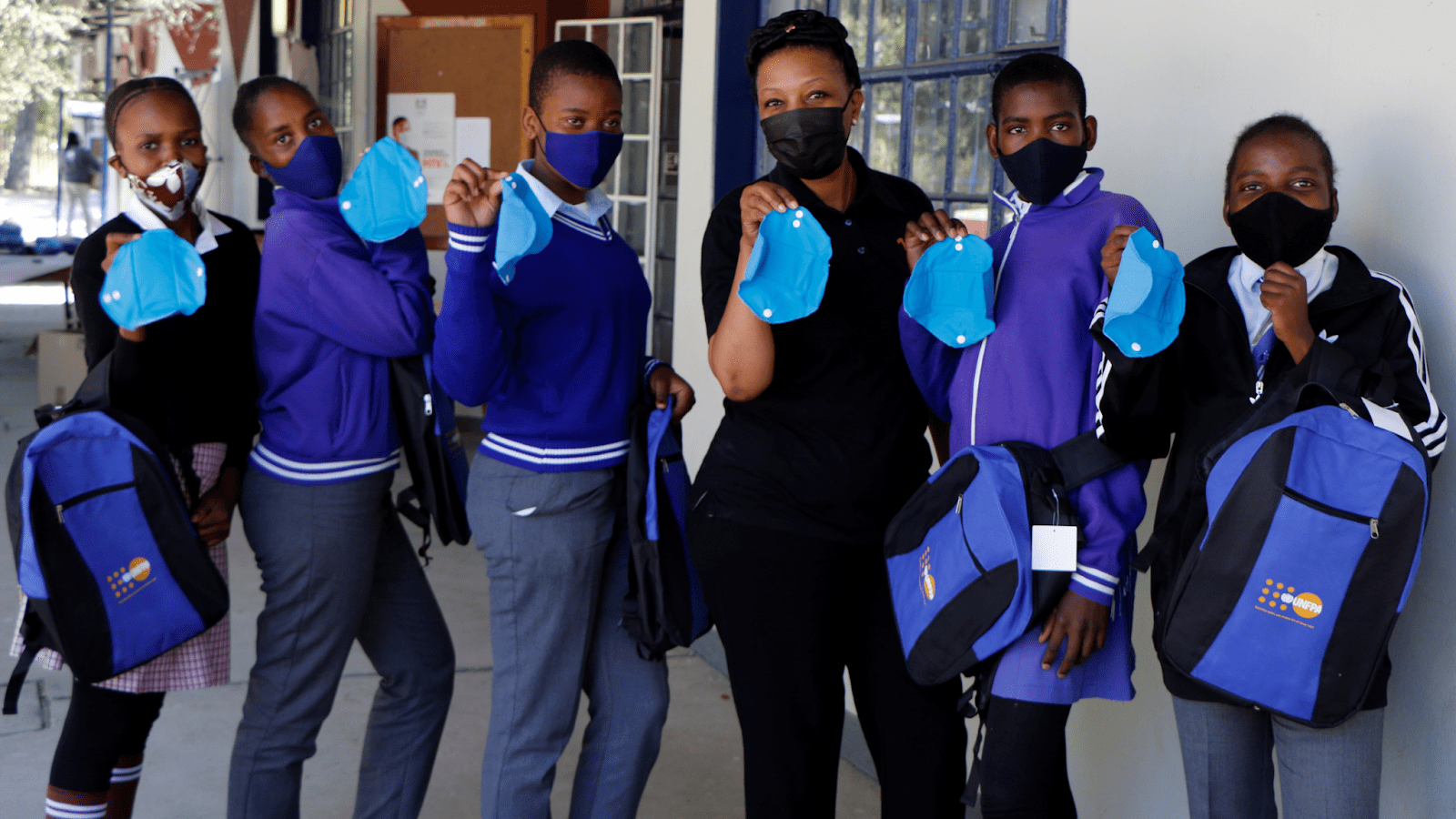SERONGA, Botswana- Botshelo Kehumile* found out she was having her first period when she went to the bathroom and realized she had stained her underwear. At fourteen years old, no one had ever talked to her about menstruation so she felt embarrassed and scared to seek help.
“I was too afraid and embarrassed to tell my parents,” she said.
She stood rooted by the living room door, debating whether to tell her mom or sister. After gathering enough courage, she approached her sister for help, who fortunately explained to her that periods are normal, gave her clean underwear and sanitary pads and showed her how to use them. Her sister smiled and told her that it symbolizes that she is woman now.
Oftentimes, this believe that menstruation symbolises womanhood and indicates readiness for marriage and sex leaves girls vulnerable to a host of abuses, including child marriage, sexual violence or coercion, and early pregnancy. In many places around the world, a girl’s first period, called menarche, is believed to be a sign that she is ready for marriage, sexual activity and childbirth. While menstruation is one indication of biological fertility, it does not mean girls have reached mental, emotional, psychological or physical maturity. In rare cases, menarche can take place before a girl reaches age 7 or 8, for example. And even older teens may not be mature enough to make informed choices about marriage, sexual activity or motherhood.
Many adolescent girls share Botshelo’s story as most of them greet their first periods with alarm, with little if any knowledge of menstruation. Others are burdened with misinformation and myths. Lack of accurate information leaves room for confusion and embarrassment, the repercussions of which can be far-reaching for girls and their communities
Lack of information
Talking about menstruation is taboo in many communities across the world, Botswana included. Many girls are not as fortunate as Botshelo as oftentimes they do not get the support they need when experiencing their first period. As a result, girls are often fearful and unprepared when they start having periods. In some communities, they miss school and fall behind in their studies. Many drop out.
Addressing the challenges
Gender inequality, cultural taboos, poverty and lack of basic services undermine many girls’ and women’s ability to meet their health and hygiene needs. Emergencies like the COVID-19 pandemic can exacerbate these deprivations — especially among the most vulnerable — with far-reaching adverse effects. Leaving no one behind is the central, transformative promise of the 2030 Agenda for Sustainable Development. Under the Safeguard Young People programme, UNFPA in collaboration with Women Agaisnt Rape (WAR), is implementing the Aka Re Koo project, which focuses on Comprehensive Sexuality Education for both in school and out of school young people in the Ngami and Okavango districts. This is part of efforts to strengthen access to information and services for some of the furthest left behind young people.
As part of this support UNFPA provided 1500 reusable sanitary pads to 500 girls in two schools; Ngambao CJSS in Seronga and Shakawe Senior in Shakawe. In the past engagements with young people in the district, menstruation and access to sanitary pads were identified as challenges that significantly hindered the girl child’s access to continued quality education. Girls who do not have access to pads miss three to four days of school each month during their menses, which adds up to 30 to 40 missed days per school year.
When handing over the sanitary pads, UNFPA Head of Office Ms. Mareledi Segotso said that every girl child and woman deserves the right to manage their menstruation in a dignified manner, irrespective of their socioeconomic status or geographic location. She further said it was vital for girls to have age-appropriate education about menstruation and hygiene, and sexual and reproductive health to encourage positive attitudes and behaviors.
Keemetse Morule,* one of the recipients of the sanitary pads, and a student at Ngambao Community Junior School, could barely hide her delight. She said there is a sense of shame when you are not able to have sanitary PADS every month.
Menstruation is very costly for us because we can’t afford to buy disposable sanitary pads. These reusable pads will help us focus on school and not worry about our next period
UNFPA recognizes menstrual hygiene as a vital part of the health and dignity of women and girls and provides support to implementing partners to address needs in this area through Comprehensive Sexuality Education.
UNFPA will continue to accelerate efforts to help young women and adolescent girls gain knowledge they need to manage their menstruation safely, hygienically and with dignity, bust myths that periods are a problem, so that girls are not held back, but empowered to realize their full potential.
More information on Menstruation and Human Rights can be accessed here
*name changed for protection
-Priscilla Rabasimane


